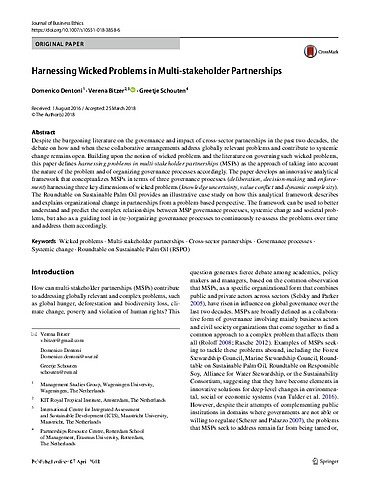Abstract
Despite the burgeoning literature on the governance and impact of cross-sector partnerships in the past two decades, the debate on how and when these collaborative arrangements address globally relevant problems and contribute to systemic change remains open. Building upon the notion of wicked problems and the literature on governing such wicked problems, this paper defines harnessing problems in multi-stakeholder partnerships (MSPs) as the approach of taking into account the nature of the problem and of organizing governance processes accordingly. The paper develops an innovative analytical framework that conceptualizes MSPs in terms of three governance processes (deliberation, decision-making and enforce-ment) harnessing three key dimensions of wicked problems (knowledge uncertainty, value conflict and dynamic complexity). The Roundtable on Sustainable Palm Oil provides an illustrative case study on how this analytical framework describes and explains organizational change in partnerships from a problem-based perspective. The framework can be used to better understand and predict the complex relationships between MSP governance processes, systemic change and societal problems, but also as a guiding tool in (re-)organizing governance processes to continuously re-assess the problems over time and address them accordingly.
provenance
Submitted by Greetje Schouten (Schouten@rsm.nl)
